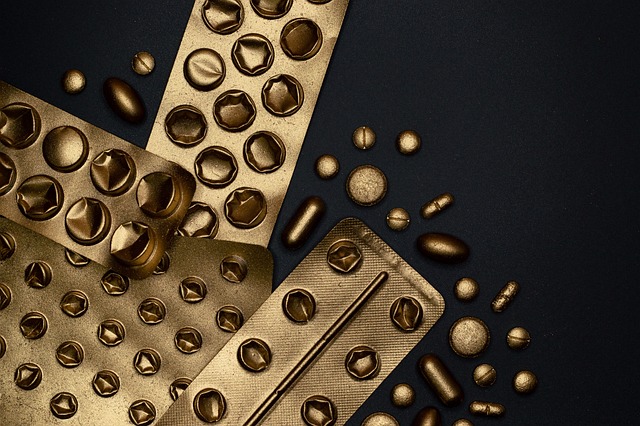Cold plunges and water therapy involving cold exposure offer a natural and effective approach to anti-aging skincare. Scientific research highlights that these practices stimulate positive cellular responses, boosting autophagy, collagen production, and blood flow upon emergence. The resulting benefits include reduced inflammation, enhanced skin elasticity, and improved circulation, all contributing to a more youthful and radiant complexion by combating wrinkles and signs of aging naturally. 'Cold shock' mechanisms trigger hormonal and neuropeptide reactions, promoting cellular repair and immune function while accelerating fat burning for added skin rejuvenation effects.
Unveiling the Science Behind Cold Therapy and Its Anti-Aging Potential
In a world obsessed with youthfulness, cold therapy emerges as an unexpected ally in the quest for ageless beauty. This ancient practice, now backed by modern science, taps into the body’s natural response to cold temperatures to unlock profound anti-aging benefits. From stimulating cellular repair mechanisms to enhancing skin elasticity, cold exposure offers a holistic approach to slowing down time and revitalizing your appearance.
This article delves into the fascinating interplay between cold water immersion and physiological processes, exploring how this simple yet powerful technique can transform both your skin’s health and overall well-being. Get ready to discover the science behind cold therapy and unlock its anti-aging secrets.
# Blog Post Outline: Unveiling the Science Behind Cold Therapy and Its Anti-Aging Potential
Cold therapy, in its various forms such as cold plunges and cold water immersion, has gained significant attention for its potential anti-aging benefits. The science behind this trend reveals that exposure to cold temperatures triggers a cascade of positive cellular responses. One key mechanism is the increase in autophagy, a natural process where cells break down and recycle damaged components, essentially rejuvenating themselves. This enhanced cellular housekeeping contributes to reduced inflammation and better overall skin health.
Additionally, cold water therapy stimulates blood flow when you emerge from the cold, promoting nutrient-rich blood to reach the skin’s surface. This increased circulation fosters collagen production, a protein vital for maintaining skin elasticity and reducing the appearance of wrinkles. Regular cold plunges or immersions may therefore offer a natural and effective approach to combating signs of aging, providing users with youthful, radiant skin.
<section id="the-physiological-response-to-cold-exposure“>
The Physiological Response to Cold Exposure
The physiological response to cold exposure involves a complex interaction between the nervous and endocrine systems. When the body encounters cold temperatures, such as through a cold plunge or cold water therapy, it triggers a series of adaptive responses. These include increased heart rate, constriction of blood vessels in the skin, and the release of stress hormones like norepinephrine. This initial “fight or flight” response prepares the body for potential threats, but it also has anti-aging benefits, promoting cellular repair and enhancing immune function.
Cold water immersion, a common practice among advocates of cold therapy, has been shown to stimulate collagen production in the skin. Collagen is a key protein responsible for maintaining skin elasticity and firmness, which naturally declines with age. By exposing the body to controlled cold, the skin’s natural response can be enhanced, leading to improved texture and a more youthful appearance. Additionally, cold plunges have been linked to reduced inflammation and better circulation, contributing to overall skin health and potentially delaying the visible signs of aging, such as wrinkles.
– Exploring the body's natural reactions to cold temperatures, including the release of hormones and neuropeptides.
The human body has an intricate response to cold temperatures, a phenomenon that has intrigued scientists and wellness enthusiasts alike. When exposed to cold, whether through a cold plunge or immersion in icy water, the body initiates a series of complex reactions. One of the key aspects is the release of hormones like epinephrine (adrenaline) and norepinephrine, which prepare the body for potential threats by increasing heart rate and blood flow. This response, often referredred to as the ‘frosty shock’, isn’t just a survival mechanism; it has been linked to various anti-aging benefits.
Neuropeptides, another group of compounds released during cold exposure, play a significant role in skin health and rejuvenation. Cold water therapy stimulates the production of these peptides, which have been found to reduce inflammation, boost collagen synthesis, and improve overall skin texture. The combination of hormonal responses and neuropeptide activation results in a rejuvenated and youthful appearance, making cold plunges and similar therapies attractive for those seeking to combat the signs of aging effectively.
– Discussing the role of 'cold shock' in stimulating cellular repair mechanisms.
The science behind cold therapy reveals a powerful tool in the pursuit of youthful skin and overall anti-aging. One key mechanism is the concept of ‘cold shock’. When the body is exposed to cold temperatures, whether through a cold plunge or cold water therapy, it initiates a series of cellular responses. This shock triggers cells to ramp up their repair mechanisms, enhancing protein synthesis and boosting production of growth hormones, all essential for skin rejuvenation and slowing down the aging process.
The benefits of cold plunges for anti-aging are multifaceted. Cold exposure improves blood circulation, increasing oxygen and nutrient delivery to the skin. This enhanced nutrition supports collagen production, a key structural protein responsible for skin elasticity and firmness. Additionally, cold water therapy can accelerate fat burning and improve insulin sensitivity, contributing to a more youthful, radiant complexion.
Cold therapy, through methods like cold plunges and cold water immersions, has been shown to offer a multitude of anti-aging benefits. By inducing a controlled ‘cold shock’ response in the body, this practice stimulates cellular repair mechanisms, enhances circulation, and promotes the release of hormones and neuropeptides that support skin health and overall rejuvenation. Incorporating regular cold exposure into one’s routine can be a simple yet powerful way to achieve youthful-looking skin and slow down the aging process, making it a popular choice for those seeking holistic anti-aging solutions.
